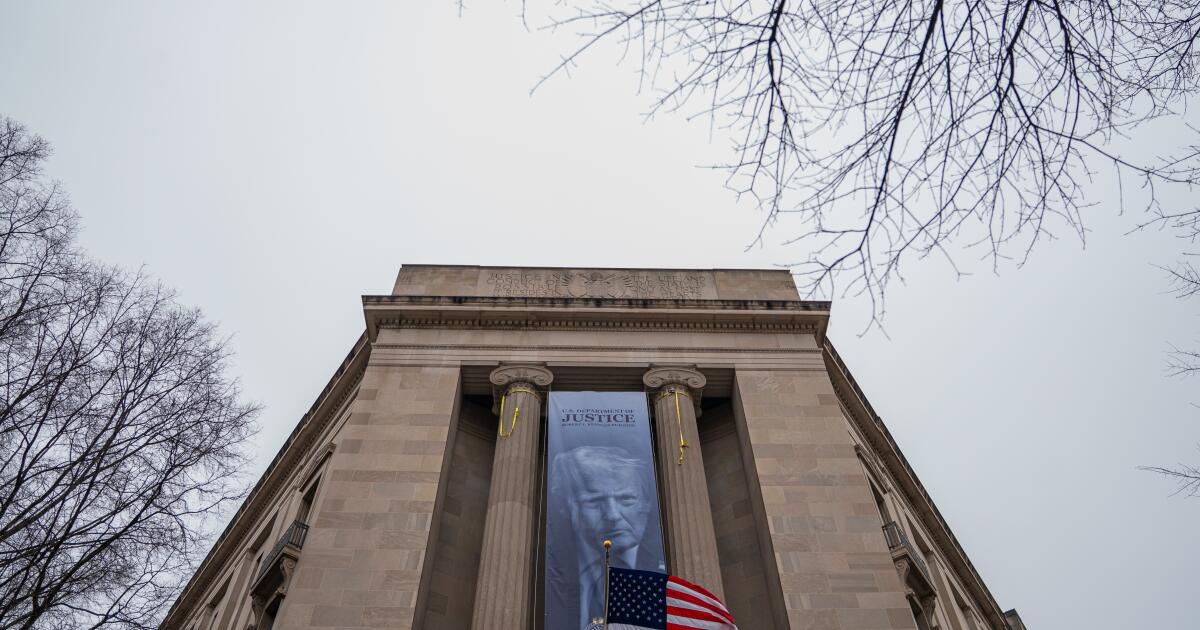Trump has stocked his administration with people who have backed his false 2020 election claims
President Trump has long spread conspiracy theories about voting designed to explain away his 2020 election loss to Democrat Joe Biden. Now that he’s president again, Trump has stocked his administration with those who have promoted his falsehoods and in some cases helped him try to overturn his loss.
Those election conspiracists now holding official power range from the attorney general to lawyers filing lawsuits for the Justice Department. Kurt Olsen, a lawyer who unsuccessfully pushed the Justice Department in 2020 to back the president’s false claims, is now leading a sweeping probe of the vote from that election.
The most dramatic action from that mandate was the seizure in late January of ballots and 2020 election records from Fulton County in Georgia, a Democratic stronghold that includes Atlanta. The county has long been a target of election conspiracy theorists aligned with Trump, and the affidavit for the search warrant shows the action was based on 2020 claims that in many cases had been thoroughly investigated.
Election officials across the country, especially those in states controlled politically by Democrats, are bracing for more turmoil during this year’s elections, when control of Congress is on the line.
“The election denial movement is now embedded across our federal government, which makes it more powerful than ever,” said Joanna Lydgate, chief executive of States United Democracy Center, which tracks those who promote election conspiracy theories. “Trump and his allies are trying to use all of the powers of the federal government to undermine elections, with an eye to the upcoming midterms.”
Trump has remade the federal government as an arm of his own personal will, and his attorney general, Pam Bondi — who helped try to overturn Trump’s 2020 loss — has declared that everyone working at the Justice Department needs to carry out the president’s demands. Even with all the issues facing him in his second term, from persistent concerns about the economy to his immigration crackdown, Trump continues to push the false claim that he won the 2020 presidential election.
Some of the people who populate his administration are, like Bondi, longtime supporters who continued to help Trump even as he sought to overturn an election. Some played minor roles in supporting the false claims about the 2020 presidential election. Still others have pushed conspiracy theories, often fantastical or debunked, that have helped persuade millions of Republicans that Trump had the 2020 election stolen from him.
Riccardi writes for the Associated Press.
